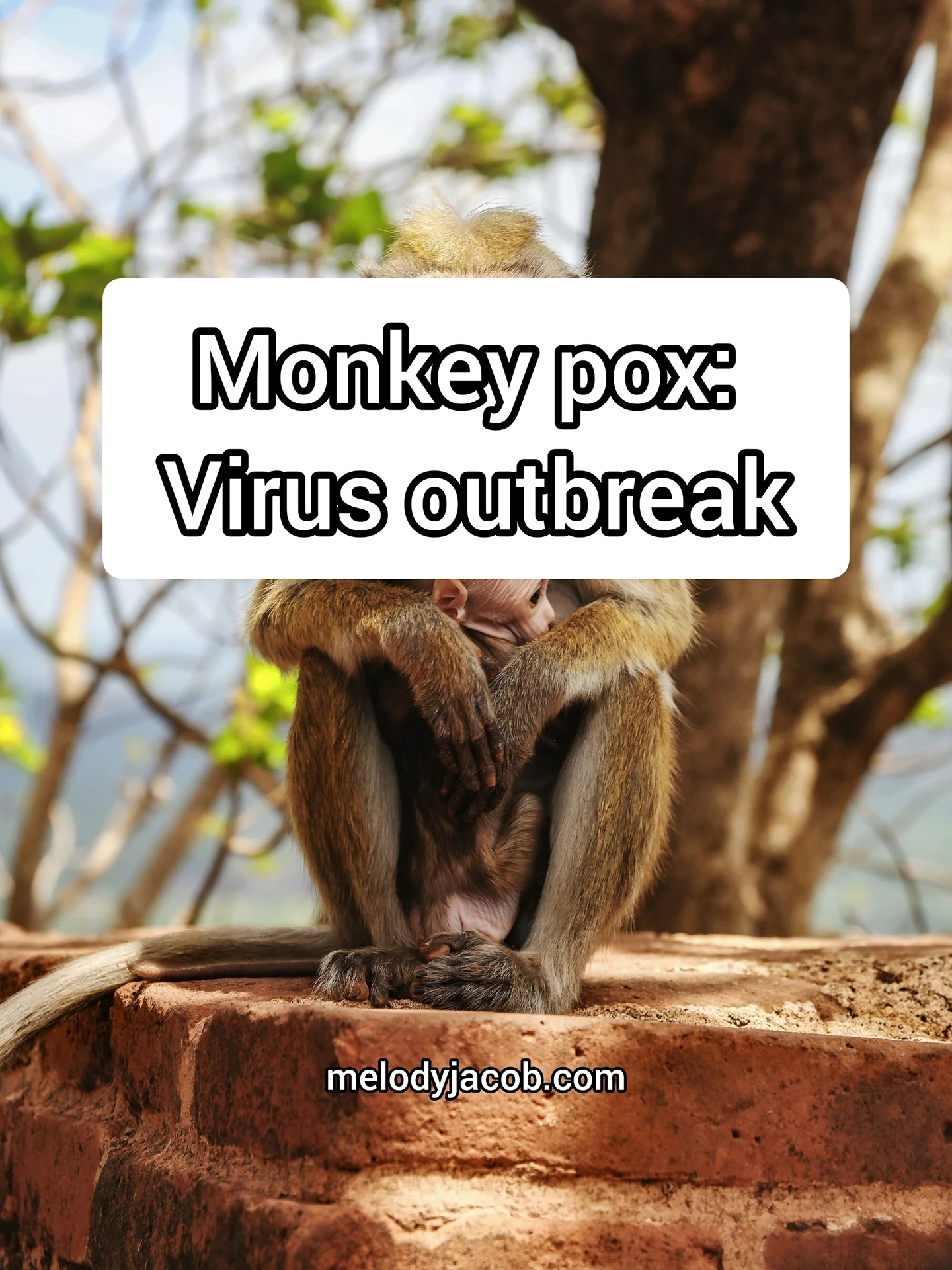What is monkeypox?
Monkeypox is an infection caused by a virus in the same family as smallpox. It causes a comparable (though typically less severe) disease and is most widespread in central and western Africa. It was first detected in studied monkeys more than half a century ago. Certain squirrels and rats found in Africa are among other species that host this virus.
Currently, an outbreak is spreading swiftly outside of Africa. The virus has been reported in at least a dozen countries, including the US, Canada, Israel, and across Europe. As of the time of writing, Reuters has reported more than one hundred confirmed or suspected cases, making this the largest known outbreak outside of Africa. There have been no recorded deaths thus far.
Naturally, news of an unusual virus spreading rapidly across the globe brings to mind the beginning of the COVID-19 pandemic. But monkeypox was discovered for the first time in 1958, and several things about it suggest that it is likely to be much less dangerous.
What symptoms does monkeypox cause?
The earliest signs of monkeypox are influenza-like and include fever and sore throat. Fever, tiredness, headache, lymph nodes that are swollen.
A few days later, a distinctive rash develops. It frequently begins on the face and spreads to the palms, arms, legs, and other body regions. Recent incidences have shown vaginal rashes. Over the course of two weeks, the rash progresses from small, flat spots to blisters (vesicles) resembling chickenpox, and finally to bigger, pus-filled blisters. These wounds can take weeks to scab over. Once this occurs, a person is no longer infectious.
Even though the illness is usually mild, it can lead to complications like pneumonia, blindness from an eye infection, and sepsis, an infection that could kill you.
How does one contract monkeypox?
This disease typically affects people who have had contact with diseased animals. It may result from a bite, scratch, or consumption of raw animal meat.
The virus can spread among humans in three ways:
Inhaling respiratory droplets directly touching an infected person less frequently, as through handling an infected person's clothing.
The respiratory pathway is characterized by large droplets that do not linger or go far. Consequently, transmission from person to person often needs prolonged, intimate contact.
Can monkeypox be transmitted sexually?
Because it can be transmitted through any physical contact and not simply sexual contact, monkeypox is not classified as a sexually transmitted infection (STI). Some of the recent cases have included guys who had sexual relations with other men. This pattern has not previously been described.
Can monkeypox be cured?
Yes. There are no FDA-approved particular therapies for monkeypox, but various antiviral medications may be beneficial. Cidofovir, brincidofovir, and tecovirimat are examples.
Can monkeypox be avoided?
Vaccination can aid in preventing this disease. Until the 1970s, standard smallpox immunization in the United States was 85 per cent effective against monkeypox. The government of the United States has kept smallpox vaccines in case there is a large-scale outbreak.
In 2019, the FDA also approved a vaccine (named JYNNEOS) for those over the age of 18 who are at high risk of contracting smallpox or monkeypox. As this disease spreads, the manufacturers of this vaccine are increasing their output.
If you are caring for someone with monkeypox, taking these precautions may help protect you from the virus: wear a mask and gloves, wash your hands frequently, and if feasible, maintain a physical distance. A caregiver should ideally have been previously immunized against smallpox.
How ill are the majority of monkeypox patients?
Monkeypox is usually a mild infection that goes away by itself in a few weeks. Researchers have determined that the strain of monkeypox identified in West Africa is responsible for the current outbreak. The death rate of this strain is significantly lower than that of the Congo Basin strain (about 1 percent to 3 percent versus 10 percent). Children, pregnant women, and people with suppressed immune systems may be more susceptible to sickness.
What else about this epidemic is peculiar?
Numerous ill individuals have not gone to or from areas where this virus is often present, nor have they had known contact with infected animals. Additionally, there appears to be more person-to-person transmission than in previous outbreaks.
Are there any favorable reports on monkeypox?
Yes. After symptoms appear, monkeypox is typically infectious, which can help limit its spread. People were able to share COVID-19 before recognizing they had it, which contributed to its rapid spread.
Because the virus does not travel easily from person to person, outbreaks are few and typically small. The last time this happened in the United States was in 2003. According to the Centers for Disease Control and Prevention (CDC), about 50 people in the Midwest got sick after coming into contact with prairie dogs kept as pets and boarded with animals brought in from Ghana.
In contrast to SARS-CoV2, the virus that causes COVID-19, monkeypox is not expected to cause a pandemic. It does not spread as quickly, and by the time a person is contagious, they are typically aware of their illness.
How concerned ought we to be?
The escalating number of cases in many nations suggests that the disease is spreading to the community. In the coming days and weeks, further cases will likely be identified.
It is still early in the pandemic, and many questions remain unsolved, including:
Has the monkeypox virus evolved to make its spread easier?
The initial study appears encouraging. Who is the most vulnerable?
Will diseases be more severe than in the past?
Existing antiviral medications and vaccinations: will they be successful against the virus? What steps are available for limiting this outbreak?
Therefore, monkeypox is no laughing matter, and scientists are working hard to answer these issues. Stay tuned as we acquire additional information. And inform your doctor if you get an unexplained rash or other signs of monkeypox, particularly if you have recently been to areas where cases have been documented.

